Search Results
Showing results 1 to 20 of 60

Dye Like A Natural
Source Institutions
In this activity, learners stain fabrics--on purpose!
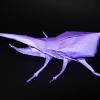
My Insect
Source Institutions
In this activity, learners use information gathered from a variety of sources to design and make their own insect.
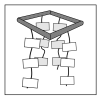
Food Chains and Webs
Source Institutions
In this activity, learners investigate feeding relationships. Learners complete a food web and then make a mobile to represent a food chain.
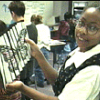
Butterfly Life Cycle Optical Illusion
Source Institutions
This activity is a fun way to show two stages in a Monarch butterfly's life cycle. Learners will create an optical illusion that can be flipped from caterpillar to butterfly.
Press Seaweed
Source Institutions
In this activity, learners will collect, dry and press seaweed over the course of four days in a similar way that artists/crafters press flowers.
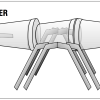
Minibeast Models
Source Institutions
In this activity, learners create models of bugs. Learners use household materials like plastic cups and straws to create models of bugs like centipedes and spiders.
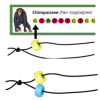
Sequence Bracelets
Source Institutions
In this craft-based activity, learners make DNA sequence bracelets that carry the code of an organism such as a human, trout, chimpanzee or butterfly.
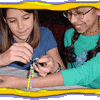
Wear a Chimp on Your Wrist
Source Institutions
Learners construct a bracelet containing two strands of beads, which represents a double strand of DNA that codes for a gene. They match beads to the bases in a section of a chimp's DNA code.
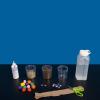
Make a Friend from Soil and Seeds
Source Institutions
Learners assemble a figure from a nylon stocking or sock stuffed with soil and seeds. The ends of the nylons inside the jar absorb water, which feeds the grass seeds.
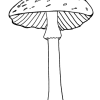
Making Paper with Fungi
Source Institutions
In this activity (p.24 of PDF), learners make paper with fungi. Learners discover that paper is basically a flat mat of fibers.
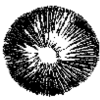
How to Make a Spore Print
Source Institutions
In this activity (p.25 of PDF), learners investigate spores. Mushrooms produce millions of spores which are equivalent to the seeds of plants but without the massive food reserves.
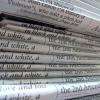
Paper making: a craft and a chemical engineering major
Source Institutions
In this activity, learners explore the question "What is paper?" Learners discover the processes and materials required to make paper while experimenting with different recycled fibers and tools.
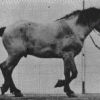
Horse Gaits Flipbooks
Source Institutions
In this activity, learners explore the gait of horses by constructing flipbooks with British photographer Eadweard Muybridge's famous photographs.
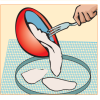
Making Recycled Paper
Source Institutions
In this activity on page 11 of the PDF, learners follow simple steps to recycle old newspaper into new paper.
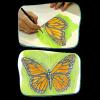
Draw a Monarch Butterfly: Scientific Illustration
Source Institutions
Ivy Rutzky, a scientific assistant at the American Museum of Natural History, introduces an activity where learners create a scientific illustration of a monarch butterfly.
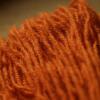
Dyeing Wool with Fungi
Source Institutions
In this activity (p.23 of PDF), learners dye wool with fungi. Learners discover that natural chemicals in fungi can dye wool different colors.
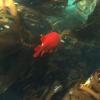
Design a Fish
Source Institutions
In this activity (page 2 of PDF under GPS: Alligator Habitat Activity), learners will study the adaptations different fish species have developed to survive in their habitats.
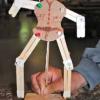
Lever Cowboy
Source Institutions
In this activity, learners build a figure that moves and "comes to life" when they pull its string.
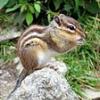
Ask an Elder
Source Institutions
In this activity, learners listen to a story and tell a story of their own as they learn about the importance of elders in Native American cultures.
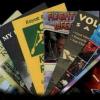
Destination Tidepool
Source Institutions
In this activity (page 7 of pdf), learners research tide pool ecosystems, and then create brochures that "advertise" these environments.
